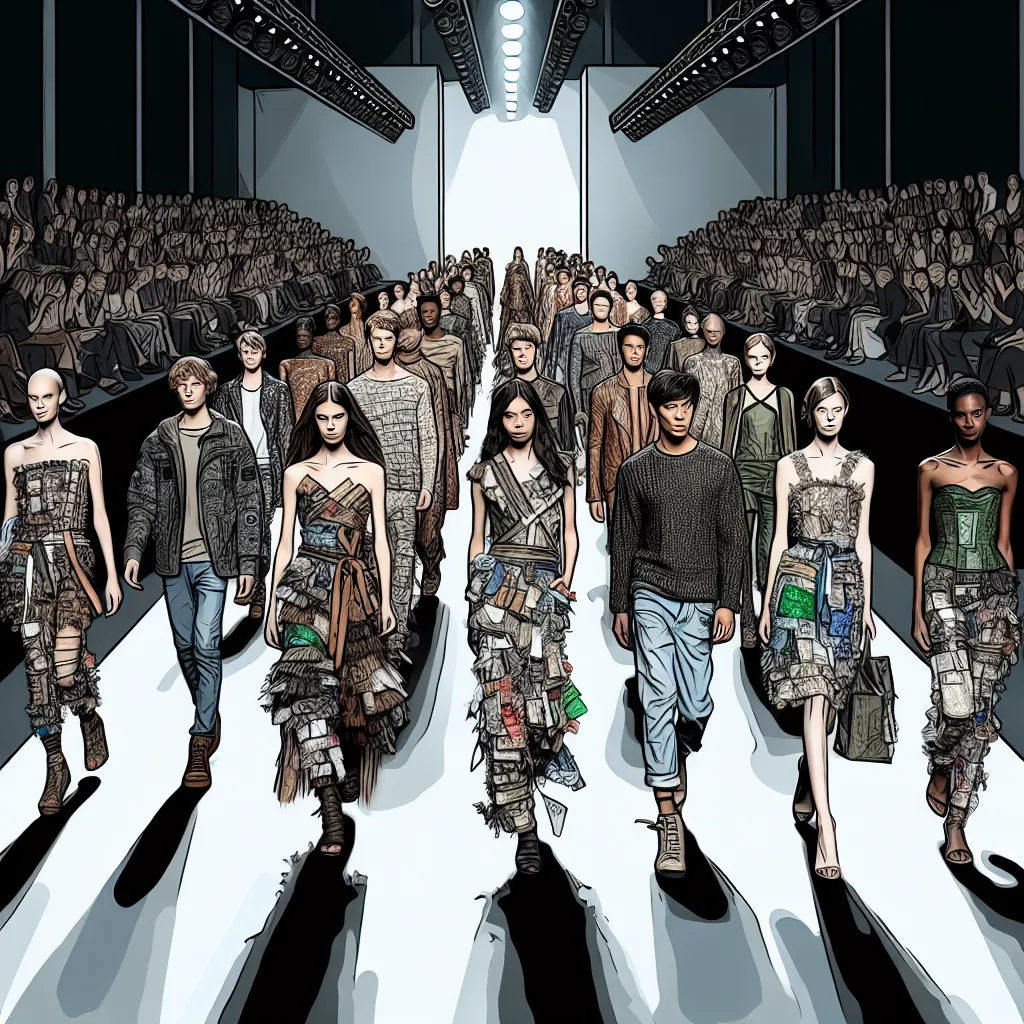The Evolution of Eco-Friendly Fabrics in Fashion
The rise of sustainable fashion has brought significant changes to the fashion industry, particularly in the evolution of eco-friendly fabrics. Designers and manufacturers are increasingly turning towards sustainable and environmentally friendly materials to create stylish and innovative clothing. One of the key aspects of this evolution is the development and utilization of eco-friendly fabrics such as organic cotton, hemp, bamboo, and recycled polyester.
Organic cotton is cultivated without the use of synthetic pesticides and fertilizers, reducing the environmental impact of cotton production. Likewise, hemp is a highly sustainable and versatile material, requiring minimal water and no pesticides to grow. Bamboo fabric is gaining popularity due to its fast growth and minimal need for water and pesticides. In addition, recycled polyester, often derived from PET bottles, decreases the demand for new petroleum-based polyester production and reduces plastic waste.
These eco-friendly fabrics not only minimize the environmental impact of fashion production but also contribute to creating healthier working conditions for farmers and workers in the textile industry. As consumers become more conscious of the environmental and social implications of their clothing choices, the demand for sustainable and ethically produced fabrics continues to grow.
In conclusion, the fashion industry’s embrace of eco-friendly fabrics signifies a positive shift towards sustainability. The evolution of these materials has paved the way for a more environmentally conscious approach to fashion design and production, making it possible to create beautiful, high-quality clothing without compromising the well-being of the planet and its inhabitants.
Innovations in Ethical Production Practices
In recent years, the fashion industry has witnessed a significant shift towards sustainable and ethical production practices. This shift has been driven by the increasing consumer demand for environmentally friendly and socially responsible clothing options. To meet this demand, fashion brands have been embracing innovative approaches to ethical production.
One of the notable innovations in ethical production practices is the adoption of sustainable and eco-friendly materials. Many fashion companies are now utilizing organic cotton, recycled polyester, and innovative materials derived from renewable sources such as bamboo and beech trees. These materials not only reduce the environmental impact of clothing production but also promote biodiversity and support fair labor practices.
In addition to sustainable materials, advancements in production technologies have also played a crucial role in promoting ethical practices in the fashion industry. The implementation of cutting-edge manufacturing processes, such as 3D printing and computer-aided design, has enabled fashion brands to minimize waste, reduce energy consumption, and optimize production efficiency. Furthermore, the use of digital supply chain systems has enhanced transparency and traceability, ensuring that ethical standards are upheld throughout the entire production process.
Furthermore, the concept of “slow fashion” has gained momentum as a response to fast fashion’s detrimental impact on the environment and labor conditions. Slow fashion promotes the production of high-quality, durable garments that are made to last, encouraging consumers to invest in timeless pieces rather than succumb to fleeting trends. This shift towards longevity and mindful consumption aligns with the principles of ethical production and sustainability.
Overall, the rise of sustainable fashion has spurred innovation in ethical production practices, driving the fashion industry towards a more environmentally conscious and socially responsible future.
Consumer Trends Driving the Shift to Sustainable Fashion
In recent years, there has been a notable shift in consumer trends towards sustainable fashion, driven by a growing awareness of environmental and social issues. This shift is characterized by an increasing demand for transparency, ethical production practices, and eco-friendly materials in the fashion industry. Consumers are now more conscious of the impact of their purchasing decisions, leading them to seek out brands that align with their values and prioritize sustainability.
One of the key consumer trends driving the shift to sustainable fashion is the desire for transparency and traceability in the supply chain. Modern consumers want to know the origins of the products they buy, including where materials are sourced and how the garments are produced. This demand for transparency has pushed fashion brands to be more accountable and to adopt sustainable and ethical practices throughout their supply chains.
Additionally, the rise of sustainable fashion can be attributed to a growing concern for the environment. With increased awareness of issues such as climate change and plastic pollution, consumers are actively seeking out clothing made from eco-friendly materials such as organic cotton, recycled polyester, and lyocell. They are also favoring brands that take steps to minimize waste and reduce their carbon footprint.
Furthermore, the influence of social media and digital connectivity has played a significant role in shaping consumer trends towards sustainable fashion. As information becomes more accessible, consumers are empowered to educate themselves about the impact of the fashion industry and make informed choices. Social media platforms have also enabled the rise of sustainable fashion influencers and communities, further driving awareness and encouraging sustainable purchasing behaviors.
In conclusion, the shift to sustainable fashion is being largely driven by consumer trends that prioritize transparency, environmental consciousness, and digital connectivity. As these trends continue to shape the fashion industry, brands will need to adapt and integrate sustainability into their core values in order to meet the evolving demands of conscious consumers.
The Impact of Sustainable Fashion on the Environment
The rise of sustainable fashion has brought about a significant shift in the way we perceive and engage with clothing. One of the most crucial aspects of sustainable fashion is its impact on the environment. Traditional fashion industry practices have been associated with a host of environmental issues, including water pollution, excessive energy consumption, and the generation of significant amounts of textile waste. However, the emergence of sustainable fashion has begun to address and mitigate these detrimental effects.
Sustainable fashion aims to minimize its environmental impact at every stage of the production process. This includes the sourcing of raw materials such as organic cotton, hemp, and bamboo, which reduces the reliance on conventional, resource-intensive materials. Additionally, sustainable fashion designers and brands prioritize the use of eco-friendly dyes and chemicals, further reducing the ecological footprint of their products. Moreover, the emphasis on producing timeless, durable pieces encourages consumers to invest in high-quality clothing that has a reduced impact on the environment over its extended lifecycle.
Furthermore, the adoption of sustainable practices in fashion extends to the reduction of carbon emissions and the implementation of ethical manufacturing processes. This involves supporting fair wages and safe working conditions for garment workers, as well as optimizing transportation and distribution methods to lower overall carbon emissions. Additionally, the concept of circular fashion, which promotes recycling, upcycling, and reusing garments, has garnered significant attention as a means to minimize textile waste and extend the lifespan of clothing items.
In conclusion, the impact of sustainable fashion on the environment is undoubtedly profound. By prioritizing eco-friendly materials, ethical production methods, and innovative waste reduction strategies, sustainable fashion is paving the way for a more environmentally conscious industry. As consumers increasingly recognize the significance of their purchasing decisions, the demand for sustainable fashion continues to grow, driving positive change for the planet.




